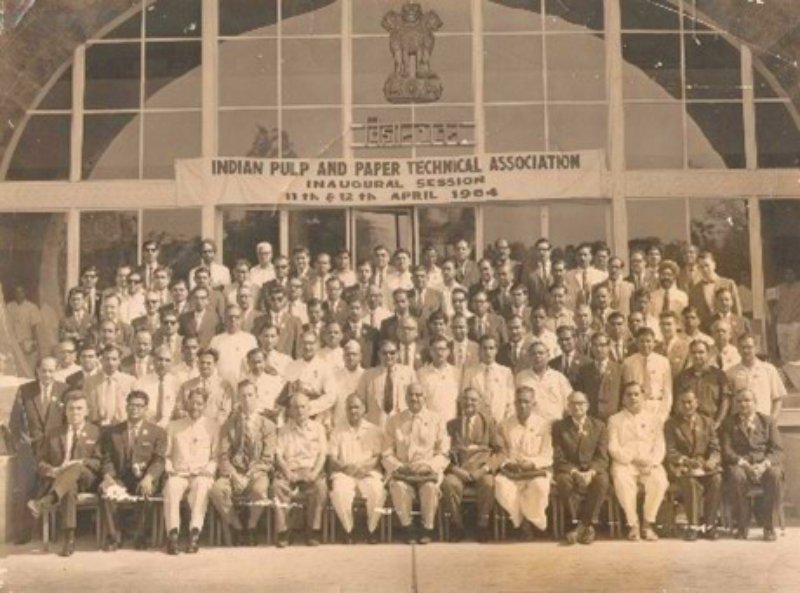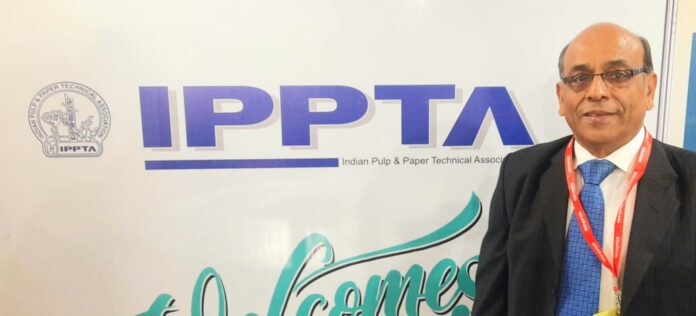Indian Pulp and Paper Technical Association (IPPTA) has been consistently advancing across all facets of its activities, demonstrating noteworthy progress. In a concerted effort to inclusively engage the entire industry, IPPTA has organized conferences in smaller locales. These events feature experienced speakers who generously share their knowledge, along with insightful panel discussions on a variety of topics. Such panel discussions directly impact customers and their customers positively.
The constructive response from members is evident through several key indicators. These are the increasing number of presentations, the depth of interaction observed during conferences, and a steadily rising participation. Such factors stand out as hallmarks of the association’s success, and we take great satisfaction in the outcomes achieved.
Speaking with The Interview World at Paperex, M.K. Goyal, Hony. Secretary General, underscores the pivotal role that IPPTA plays in tackling the technical challenges faced by the paper industry. Here are the excerpts from the discussion.
Q: Tell us about the role of IPPTA in the contemporary paper industry scenario.
A: Established in 1964, IPPTA stands as the oldest association within the Indian paper industry. Initially, we started with a modest 26 members with the fundamental goal of knowledge dissemination. Over the span of 59 years, we have evolved into a thriving organization boasting a membership exceeding 2000. We encompass all major paper mills in India, with a noteworthy 150 corporate members.
Our mission hinges on a robust platform for the paper industry to convene and address their technical challenges. We actively facilitate the exchange of insights by bringing in international experts to share the latest technological advancements. Additionally, we organize delegations to foreign nations, such as China, Korea, Japan, and various European countries. In this initiative, we allow industry professionals to firsthand witness and comprehend diverse working styles and quality standards.
Scheduled for this February, we are set to embark on another delegation to Japan. The underlying objective is to immerse ourselves in the Japanese work ethic, precision, and stringent quality parameters. Eventually, we aim to gain valuable insights for addressing the challenges faced by the paper industry in India.
Beyond our commitment to problem-solving within the industry, IPPTA is actively engaged in corporate social responsibility (CSR) initiatives. We extend support to educational institutions specializing in paper-related studies, fostering the development of future professionals in the field. Our dedication to both knowledge exchange and social responsibility underscores our enduring commitment to the growth and sustainability of the paper industry in India.
Q: What kind of support you are getting from the government of India?
A: Although we haven’t directly sought support from the government, our members are actively seeking assistance. Particularly, they seek support in light of India’s fiber shortage on policy grounds. Currently, our paper manufacturing process yields 26 million tons, with a commendable 75 percent sourced from recycled or waste paper. The remaining 15% comprises wood from sustainable sources like eucalyptus trees cultivated by farmers, rice straw, wheat straw, and bagasse.
Our proposal to the government is straightforward: provide us with barren land where we can plant trees. This will lead to a significant reduction in our carbon footprint. By doing so, we aim to be more environmentally friendly and decrease our reliance on imported wood pulp. This initiative will also pave the way for the establishment of additional paper mills utilizing locally sourced wood pulp.
Furthermore, our sister associations are urging the government to address the challenges posed by the Free Trade Agreements (FTA). These have resulted in zero duties on imports, negatively impacting the paper industry. While we dutifully pay tariffs on raw materials, the absence of duties on finished goods puts us at a disadvantage. This situation mirrors the struggles faced by the newsprint industry, where no duties are imposed on newsprint imports. The government must consider these issues and work towards creating a more balanced and supportive environment for the paper industry.
Q: What future do you see for the newsprint in the coming decade?
A: In this poignant narrative, a reflection on the changing times emerges. As someone of my generation, commencing the day with a newspaper and a comforting cup of tea was a ritual. However, a noticeable shift has occurred in the habits of the current generation. The allure of newspapers seems to be dwindling. This decline in readership poses a dilemma, a catch-22 situation. Eventually, a decrease in circulation could lead to a corresponding drop in advertisers. Furthermore, it will set off a chain reaction with far-reaching consequences.
Yet, amidst this evolving landscape, a paradox surfaces. Studies indicate that children, today, exhibit higher receptibility when engaging with content on digital platforms compared to traditional printed material. Despite our efforts to adapt, questions linger about the true merit of such changes. Particularly, the performance metrics of these new approaches seem lackluster. Returning to fundamentals becomes imperative.
From birth certificates to school mark sheets, from letters of appointment to degrees, promotions, and even death certificates, the intrinsic connection to paper remains undeniable. This observation gains significance in a world where online shopping, particularly through giants like Amazon, has become the norm. Paradoxically, while we embrace the convenience of receiving everything in a cardboard box, the demand for packaging materials has surged. This underscores the enduring relevance of writing and printing in our lives.



